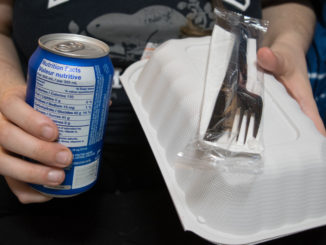Local paramedicine student fed up with financial burden of field placements.
Adam Pike
Kicker News
Work placements offer students invaluable real-world experience in their field, but one thing often missing is a paycheque.
According to the Paramedic Association of Canada (PAC), paramedicine students are typically placed in unpaid internships. PAC also says it is common practice for students across Canada to cover any fees associated with their field placement and travel.
The costs can be high, and one local student has had enough.

Meghan Gosse is a first-year paramedicine student at College of the North Atlantic’s Prince Phillip Drive campus. While she loves her program, she isn’t fond of the potential financial burden of her upcoming work placement.
“We don’t get any money for our work placement whatsoever,” said Gosse. “It’s kind of rough on the students, especially anyone who is already working.”
Paramedicine students are required to complete two field placements as part of their program. The first placement lasts three weeks, but the second spans 14 weeks. Students can be sent anywhere in Newfoundland and Labrador for their field placements.
“Nobody wants to work a 14-week program and get nothing for it – especially if you have to travel off the island. Labrador itself is kind of expensive to live in,” said Gosse.
Irene O’Brien, dean of health sciences at College of the North Atlantic, acknowledges that a work placement can put a financial strain on students.
“Once you hit the work term in these programs, students are really finding it to be a struggle,” said O’Brien. “There’s a lot of work to the work placement, and it is really tough for students to hang onto a part-time job.”
O’Brien says that some students have up to 30 class hours on a regular schedule, making it difficult for students to maintain part-time jobs even during their time at the college.
“The academic rigour of these programs really can’t be understated,” she said. “They really take a lot of time.”
The good news for students is that they are still eligible for student loans and funding. The provincial government says that this assistance does not discriminate between in-class or work placement learning and those approved for funding will receive assistance as long as they remain a full-time student.
Gosse believes a solution for students would be to provide funding to help offset the costs associated with the work placement. She points to the paid training Royal Newfoundland Constabulary’s recruits will receive through the revamped police recruit program.
“I think what the RNC is doing could be implemented in other programs,” said Gosse. “I believe cadets will be getting $15 an hour for their training. Maybe paramedicine students could be offered something similar.”
But for now, O’Brien says that she has no knowledge of the college attempting to secure funding for students to receive payments during their field placement.
“I don’t see it as being part of the landscape,” said O’Brien. “Not right this minute anyway.”
Although no bursary currently exists for students faced with field placements, O’Brien remembers a government stipend of sorts from her days as a student.
“It certainly wasn’t enough to live on,” she said. “But it was a little pool of money that was made available to students. I haven’t seen that in a million years.”
It’s an idea that some students, such as Gosse, hope the government re-adopts in the future.
“It would be a huge benefit,” said Gosse. “It’s not a cheap program and I think it would give students more motivation to get the job done.”
Related Story: The changing landscape of unpaid internships




Be the first to comment